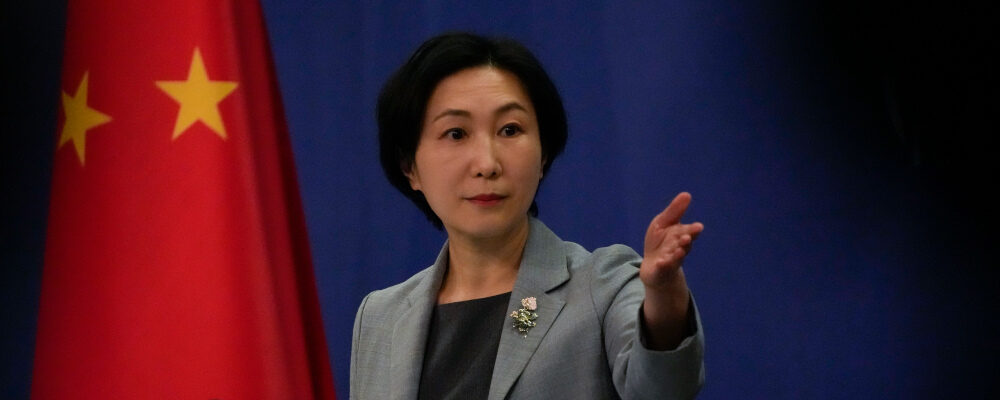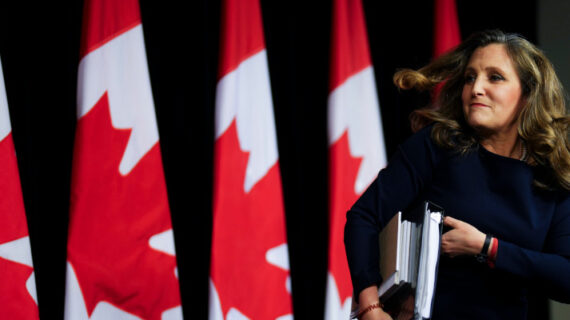The Trudeau government spent years appeasing China, but, after having our citizens held hostage and our democracy undermined, we now know that Beijing wants Canada’s obedience, not mutual respect. It’s therefore imperative that the federal government take a more assertive stance that forces Beijing to treat Canadian interests seriously. A good way to begin would be to support Taiwan’s bid to join the Comprehensive and Progressive Trans-Pacific Partnership (CPTPP).
As China benefits from its asymmetrical relationship with Canada and has shown little interest in changing the status quo, responsibility falls on Ottawa to push for a more equal arrangement. However, there are few avenues to penalize Beijing for bad behaviour.
Attempts at economic coercion would be futile and self-destructive. Alternatively, Canada could try to politically embarrass or undermine China (i.e. more forcefully calling out human rights abuses), but that runs the risk of inviting punishing retaliation from Beijing—especially if Ottawa acts unilaterally.
As in any David-vs-Goliath scenario, Ottawa needs to be cunning if it wants to stand up for itself. That means employing indirect and multilateral measures that strike at Beijing’s vulnerabilities. Supporting Taiwan’s admission into the CPTPP, a vital trading bloc designed to counter China’s influence, would be a perfect fit.
For Beijing, Taiwan is a uniquely sensitive issue. Though the island nation has functioned as a sovereign state for over 70 years, China, for complex historical reasons, considers it to be a rogue province. Annexing the island is seen as a matter of national reunification and, additionally, is believed to be essential to consolidating the Chinese Communist Party’s historical legitimacy.
Beijing has spent decades politically isolating Taiwan by lashing out at countries that recognize it as a sovereign state. As a result, Taiwan has often been unfairly excluded from global institutions. Now that China is more confident and powerful, it’s widely believed that it will attempt to conquer Taiwan within the next 10 years, even at great cost to itself.
Supporting Taiwan would be the best way for Ottawa to create a headache for Beijing without directly attacking China. However, such a strategy would need to be handled carefully to avoid creating too much direct conflict, which is why supporting Taiwan’s CPTPP application, a relatively subtle tactic, would be ideal.
The CPTPP is the successor to the Trans-Pacific Partnership (TPP), a U.S.-led initiative that would’ve created a 12-member cross-Pacific trading bloc that, by excluding China, would’ve provided a formidable counterweight to Beijing’s influence.
After U.S. President Donald Trump axed the TPP in 2016, Japan salvaged the project and relaunched it in 2018 as the CPTPP, retaining most of the TPP’s original provisions and all of its original members except the U.S. Even without U.S. involvement, the bloc accounts for a significant portion of global GDP (13.5 percent) and has been integral to Japanese-led efforts to contain China.
Taiwan has been eager to join the CPTPP—and for good reason.
Owing to its highly educated population and scarce natural resources, Taiwan has fostered an export-oriented economy that excels in manufacturing higher-value industrial goods. This economic model has important implications for Taiwan’s self-defence.
Taipei hopes that it can deter Beijing’s aggression by building global trade links and enmeshing itself into essential global supply chains. The underlying assumption is that other countries would be incentivized to defend Taiwan (diplomatically or militarily) if the island’s destruction has significant spillover harms to allied economies.
The semiconductor market has been crucial for this strategy. Semiconductors are essential components for most electronic devices, and, as Taiwan enjoys a global near-monopoly on manufacturing them, any major attack on the island would wreak havoc on technology markets across the world.
This has been referred to as Taiwan’s “silicone shield,” but that shield is now weakening. The U.S. has begun investing in domestic semiconductor production with the eventual goal of self-sufficiency. If Taiwan loses its monopoly, then it loses its leverage, so broadly diversifying and expanding trade is now more important than ever.
The CPTPP would, by reducing trade barriers, give the Taiwanese increased access to foreign markets while lowering the cost of importing raw materials. This would strengthen Taiwan’s economy while tethering it more closely to other economies.

CPTPP membership would also grant Taiwan a new platform for diplomatic engagement and international cooperation, which the Taiwanese desperately need given their exclusion from other multilateral organizations. Increasing Taipei’s visibility and standing would show the world that, despite Beijing’s disapproval, the country cannot be shunned and ignored.
The Taiwanese submitted their CPTPP membership application in September 2021 and obviously see admission as vital to their self-preservation. Last September, I visited Taipei as part of Taiwan’s first press tour since the COVID-19 pandemic. The tour was clearly designed to build support for Taiwan’s CPTPP bid. Not only was the membership application widely discussed, but our group was also composed of one journalist from every CPTPP member state, plus an American journalist.
Though they didn’t say so directly, the manner in which our Taiwanese hosts discussed the CPTPP suggested that they considered membership as part of their existential struggle.
Western commentators seem to agree that Taiwan meets the CPTPP’s membership criteria, but compliance with legal and economic standards isn’t sufficient to greenlight a membership bid. New countries can only be admitted with the unanimous consent of existing members. Predictably, many CPTPP states, particularly smaller states in southeast Asia, have been reluctant to grant this consent out of fear of angering China.
Beijing submitted its own CPTPP membership bid one week after Taiwan submitted theirs. As China doesn’t remotely meet the bloc’s membership requirements (i.e. free markets, clear regulatory environments), the move has been seen as a stunt meant to derail Taiwan’s application. Approving Taiwan and rejecting Beijing would create dangerous optics for some CPTPP members.
Even so, Japan has been a stalwart supporter of Taiwan and has lobbied other CPTPP members to support the Taiwanese membership application. As Japan is the largest economy within the bloc, Tokyo enjoys a lot of clout, but, at the same time, it’s unlikely that smaller members can be persuaded to support Taipei unless other leading CPTPP economies apply pressure, too.
Australia has been giving mixed signals and, while it has said it remains open to Taiwan’s membership, has refrained from proactively lobbying other countries. Canada has taken a similar stance and has not yet openly supported Taiwan’s application.
This should change. As the second-largest economy within the CPTPP, Canada has the capacity to work together with Japan to shift the bloc’s dynamics. If Ottawa were to come out in support of Taiwan, while avoiding openly positioning this support as retaliation for China’s bullying, this would send a signal to Beijing that Canada can create problems if treated poorly.
Ottawa could also easily hide the retaliatory nature of such a move, as Canada already has strong reasons to support Taiwanese trade. Taiwanese-Canadian trade has skyrocketed in recent years, making Taiwan Canada’s 11th largest trading partner. In February, Ottawa and Taipei entered formal negotiations on a bilateral trade deal.
There is no reason why Canada should be complacent with China’s disrespect. Uplifting Taiwan through multilateral trade politics is a smart way to show that.




